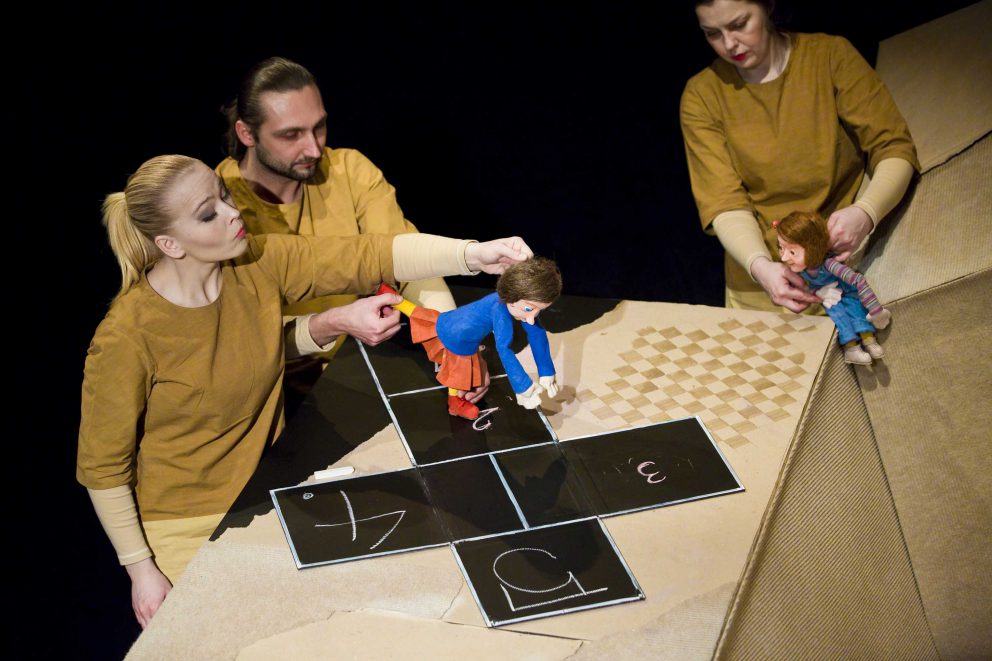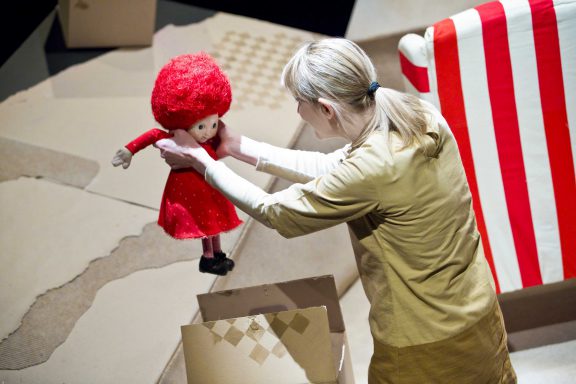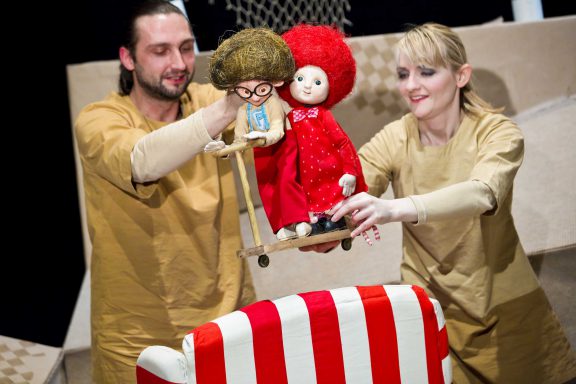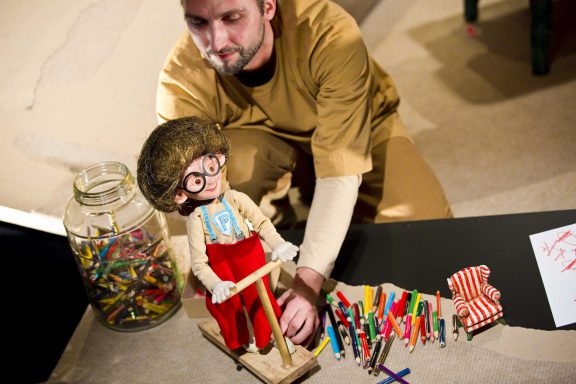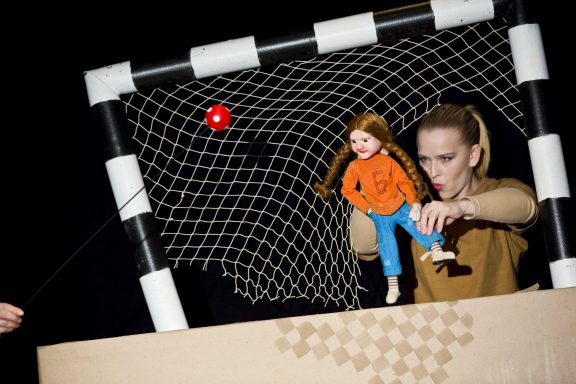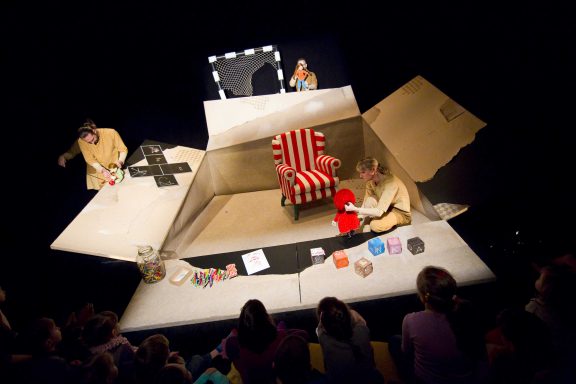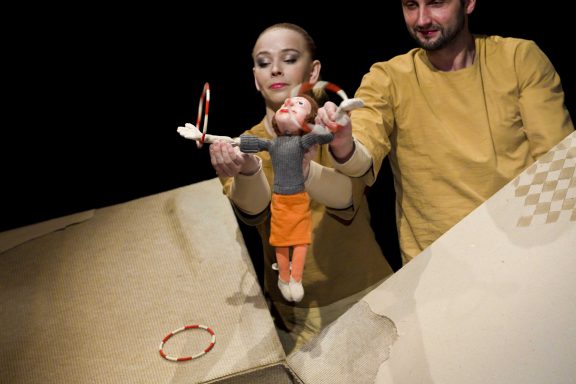Katalin Szegedi
Lenka
Lenka to rezolutna dziewczynka, która uwielbia rysować. Bardzo podobna do swoich rówieśników, radosna, miła, koleżeńska, jest tylko odrobinę grubsza… I bardzo samotna. Ma swój wewnętrzny świat, ale marzy o prawdziwej przyjaźni…
Kameralny spektakl bez słów porusza problem tolerancji i akceptacji siebie.
(…) w minimalistyczny sposób mówi o tym, (…) że warto pielęgnować swoje pasje, a nie warto przejmować się tym, co myślą i mówią o nas inni, niekoniecznie życzliwi ludzie. (Anna Kopeć, „Kurier Poranny”, 5.02.2013)
Ważne jest to, co w tej historii jest między wierszami – czyli próba opowieści o dziecięcej samotności w sposób prawdziwy i pogodny jednocześnie.(…) Pełna prostoty, ciekawie animowana historia przywraca wiarę w to, że w teatrze przyciągnięcie uwagi widza nie jest tożsame z nadmiarem efektów (…) I że inteligencji emocjonalnej małych widzów warto zaufać. (Monika Żmijewska, „Gazeta Wyborcza”, 9.02.2013)
Spektakl zrealizowany pod honorowym patronatem Węgierskiego Instytutu Kultury w Warszawie.
Lenka is a clever girl who loves to draw. Very similar to her peers, joyful, nice and friendly, she’s just a tad fatter … And very lonely. She has her own inner world, but she dreams of genuine friendship…
An intimate performance without words raises the problem of tolerance and self-acceptance.
(…) in a minimalistic way it says (…) that it is worth following one’s passions, and not worrying what others – people who are not necessarily friendly towards us – think and say about us. (Anna Kopeć, „Kurier Poranny”, 5/02/2013)
What is important in the story, lies between the lines – it is an attempt to tell a story about child loneliness in a true and yet cheerful way. (…) Full of simplicity, interestingly animated story restores our faith that attracting the attention of the viewer in the theatre is not equal to the excess of special effects (…) And that you can trust the emotional intelligence of the little viewers. (Monika Żmijewska, „Gazeta Wyborcza”, 9/02/2013)
The performance was made under the honorary patronage of the Hungarian Cultural Institute in Warsaw.
foto: Krzysztof Bieliński
